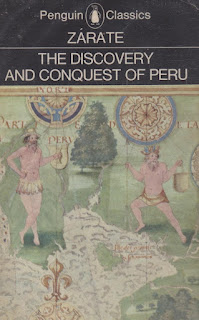 Freedom and Despair: Notes from the South Hebron Hills by David Shulman
Freedom and Despair: Notes from the South Hebron Hills by David Shulman"Non-violence is the first article of my faith. It is also the last article of my creed. But I had to make my choice. I had either to submit to a system which I considered had done an irreparable harm to my country, or incur the risk of the mad fury of my people bursting forth when they understood the truth from my lips."
- Mahatma Gandhi - Speech during the trail of 1922.
David Shulman, the famous Indologist, the author of 'Tamil' is the author of this book.I know of him as the mild-mannered author with a deep understanding of Tamil literature and have heard him speak once and found to be intellectual.
The book 'Freedom and Despair' is about David Shulman's other life as an activist in the South Hebron hills of Israel - Palestinian lands. The conflict between the Israeli settlers of the South Hebron hills and the actual owners of these lands in the villages and wadis of this area - the Palestinian farmers and shepherds form the crux of the book.
Shulman is part of the Ta'ayush - the Israeli peace activist movement - which co-ordinates protests in these areas against the settlers and in support of the Palestinians in the area. Shulman's book is a book of notes on the individual protests he participated in, the people who were part of these protests - the Palestinians, the peace activists, the soldiers and colonels and the settlers - all come in to play their part. Shulman muses around the circumstances and about the protests itself.
"Disobedience is the true foundation of liberty. The obedient must be slaves" - Thoreau.
Non-violence - by definition is an effective way of protest. However, with rabid nationalist governments, how effective Non-violence resistance movements can be is the question that comes up in the book. When the state responds with soldiers and police in riot gear against shepherds trying to get their sheep graze in their lands - how do you face that? The complete disproportionate response to simple protests means that the means of protest - being non-violent - becomes tougher to practice in the midst of mounting violence.
There are indiscriminate protests, court orders and trials for made-up cases, the response from the settlers seeing the Jewish activists siding with the Palestinians - all have to be faced with non-violence and practicing it brings forth the best in Shulman's musing around the cause which drives them and the futility of the minor victories on the ground which though boosts morale for a short while, also ends in the realization of the difficult path ahead for the attainment of the final goal.
To me, it all reminds of the way the state - here in India - responds to similar protests. The latest police violence in Thoothukudi - killing of 13 civilians during a peaceful protest and the ongoing arrest of social activists opposing the 8 lane Chennai-Salem expressway project - all reminds me of the fact that state violence is the same across the world and there is no difference between way the state looks at people's land rights and the protests around them. How do you face the state violence without resorting to violence? This is the difficult part of the musings of Shulman.
"Do not hold to the opinions of him who decides to act in violence and who wants you to decide to do the same" - Aurelius
Shulman takes the help of Marcus Aurelius and Thoreau to muse around this. Whether obeying a wicked system which thrives on violence and injustice to people is the crux of the matter and Thoreau answers it with civil disobedience as a means to face that. As Thoreau says what is good is also true and vice versa and identifying this truth is way to understanding the path one takes.
The pseudo-nationalism and the hounding of Muslims as the other are just textbook ways of the right wing to polarize the system just as the Jews were made to be in the Nazi Germany and this comes up multiple times in the book trying to make sense of the way the settlers behave and the state of Israel operates. And it all reminds me of what is being played out in the Indian politics of today. The difference is only the degree at which this tragedy being played out and in both the cases, where this will end remains to be seen - though the apprehension of this end remains high.
"All good things are wild and free" - Thoreau
While it is a romantic notion to think of truth as wild and free - it is probably the right thing to think of and Shulman ends the book with a Iftar party in the caves of the Hebron hills and in a positive note towards what freedom will mean to everyone involved. That optimism is the only way to live through the misery and despair of the day-to-day existence.
Thanks to NetGalley for the prerelease version of the book given for review.

No comments:
Post a Comment